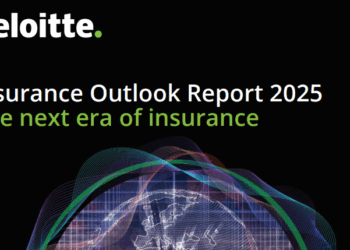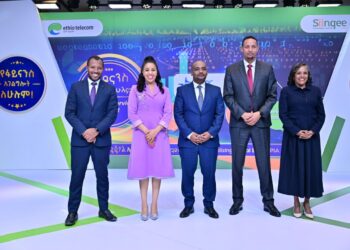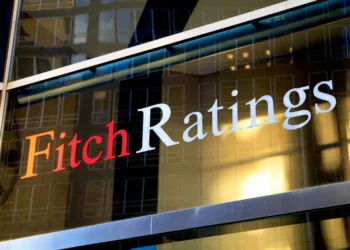Eid Mubarak 🌙
As we begin the week, we’d like to extend warm wishes to all observing Eid al-Fitr. May this season bring peace, reflection, and renewed purpose.
This week’s stories highlight the pulse of Ethiopia’s financial, governance, and reform landscape. From digital partnerships and capital market advances to deeper questions of public accountability and fiscal integrity, the developments underscore a country in motion; facing both opportunities and hard truths.
Let’s dive in 👇
Capital Markets & Finance
Ethiopian Investment Holdings Ascends as Africa’s Top Sovereign Wealth Fund
Ethiopian Investment Holdings (EIH), the country’s sovereign wealth fund, now stands as Africa’s largest sovereign wealth fund, ranking 34th globally with nearly $45 billion in assets. This surpasses the Libyan Investment Authority (~$39.5 billion) and underscores EIH’s rapid growth and strategic importance on the world stages. Established in 2021 to manage Ethiopia’s state-owned enterprises (SOEs), EIH’s portfolio of 40 SOEs recently expanded with eight additional entities, bolstering key sectors of the economy. There is even anticipation that some EIH-owned companies may soon list on the forthcoming Ethiopian Securities Exchange – a move expected to enhance transparency and attract investment into Ethiopia’s capital markets. Read here
Central Bank Holds Rates Amid Easing Inflation
The National Bank of Ethiopia (NBE) opted to keep its benchmark interest rate (the National Bank Rate) unchanged at 15% following a Monetary Policy Committee meeting on March 25 The decision reflects a balancing act as inflation has moderated to about 15% in February (with food inflation at 14.6% and non-food at 15.6%) – still elevated but on a downward trend. The central bank noted continued economic growth (a record harvest is expected) and improvements in the external sector, including rising exports, strong remittances, and increased capital inflows that have produced a current account surplus and higher foreign reserves. In tandem, NBE maintained its 18% annual credit growth cap and existing reserve requirements, reiterating its goal of bringing inflation down to single digits over the medium term. Read here
Capital Market Modernization: Securities Go Digital
The Ethiopian Capital Market Authority (ECMA) has issued a new “Dematerialization of Securities” directive, effective March 5, 2025. This initiative requires moving securities issuance and trading to an electronic system (replacing paper share certificates) to improve efficiency in the nascent capital market. Transitioning to digital records is a key step in modernizing Ethiopia’s financial infrastructure and aligns with preparations for the country’s first stock exchange, by enhancing the ease and integrity of securities transactions. Read here
ECMA Eyes Green Securities to Fund Climate Resilience
ECMA is also exploring green financing instruments to raise $2 billion by 2030. Ethiopia faces climate-related losses of up to 1.5% of GDP annually, with projections rising to 5% by the 2040s. Green bonds and carbon credits are expected to play a key role in climate finance, as over 90% of current funding comes from international donors. Source: The Reporter Ethiopia
Policy & Governance
Audit Uncovers Mismanagement at Innovation Ministry
A parliamentary committee review uncovered “serious financial mismanagement” at the Ministry of Innovation and Technology, revealing a budget shortfall of over 500 million birr. The House Public Expenditure committee’s report highlighted widespread irregularities: projects launched without proper planning or consultation, misuse and diversion of public funds, and violations of procurement procedures. Many projects were left unfinished with no status updates, and even legally mandated hiring processes were ignored – with some former employees failing to return government assets. Ethiopia’s Federal Auditor General, Mesete Demete, warned that the institution is “not prepared to correct the audit findings,” describing the ministry’s financial management as weak and citing unauthorized payments on incomplete projects. The Federal Anti-Corruption Commission is expected to oversee follow-up, ensuring those responsible are held accountable. Read here
Fuel Prices Hiked as Subsidies Recede
Ethiopia has raised domestic fuel prices significantly as the government continues phasing out subsidies. Gasoline now costs 112.67 birr per liter (up about 11% from the last adjustment in January), while diesel and kerosene are 107.93 birr/L (up ~9%) and jet fuel is 113.20 birr/L. This latest hike – effective immediately – narrows the gap between subsidized rates and true market prices; previously the government was subsidizing fuel by an estimated 28–30 birr per liter at a fiscal cost of over 72 billion birr annually. Prime Minister Abiy Ahmed noted that as of January, gasoline still sat about 15.8 birr below its unsubsidized price a gap now cut to just 4.6 birr. Officials indicate the move toward market-based pricing is driven by fiscal pressures, global oil price volatility, and a depreciating birr – though even after the increase, Ethiopia’s pump prices remain lower than neighboring countries and below the global average. Read here
Treasury Single Account to Improve Public Finance
The Ministry of Finance is working on implementing a Treasury Single Account (TSA) to centralize government funds and improve fiscal transparency. The TSA would reduce short-term borrowing and interest costs, and provide real-time visibility into government finances. Source: The Reporter Ethiopia
Addis Extends Working Hours, Bankers Push Back
The Addis Ababa City Administration mandated businesses, including banks, to stay open until 9:30 PM. Bankers argue it is impractical in the era of digital banking and warn of increased costs and staffing pressures. The NBE has not yet enforced the directive. Source: The Reporter Ethiopia
Strategic Partnerships
CBE and Mastercard Launch Digital Payment Platform
The state-owned Commercial Bank of Ethiopia (CBE) has partnered with Mastercard to launch a new digital payment platform, aiming to modernize the country’s payment ecosystem. The platform will offer CBE’s 35+ million customers secure and convenient electronic payment services that are globally accepted, while also expanding the bank’s ability to handle international transactions – capabilities that have traditionally been limited in Ethiopia’s banking sector. Speaking at the launch, CBE President Abe Sano lauded the collaboration as a “critical milestone” aligning Ethiopian banking with global standards, and Mastercard Africa President Mark Elliott noted it reflects Mastercard’s commitment to boost financial inclusion in Africa. This deepened partnership is expected to spur economic activity by broadening access to cashless payments and international financial services across Ethiopia. Read here
France Backs Ethiopia’s Reform Agenda with €28.5 Million
France’s development agency, Agence Française de Développement (AFD), has extended €28.5 million in support of Ethiopia’s Homegrown Economic Reform 2.0 agenda. The financing agreement – comprising €25 million in budget support (signed in late 2024) and a €3.5 million technical assistance grant – was finalized by Ethiopia’s Finance Minister Ahmed Shide and AFD CEO Rémy Rioux, underscoring a deepening partnership between the two nations. According to the Ministry of Finance, this support will help stabilize Ethiopia’s fiscal position, while the technical assistance component (signed by State Minister Eyob Tekalign and AFD’s country director) will fund expertise for financial sector reforms, state-owned enterprise governance improvements, Public-Private Partnership frameworks, and other structural reforms. Ethiopian officials hailed the deal as a timely boost for the reform program, noting that the budget support provides critical fiscal space and the technical assistance will strengthen institutional capacity and competitiveness. Read here
Sector Highlights
GERD Powers a Booming Fisheries Sector
The reservoir of the Grand Ethiopian Renaissance Dam (GERD) is now yielding over 14,000 kilograms of fish per day, revealing a significant economic and food security boon from the mega-dam. According to Fasil Dawit, Head of the Fisheries Development Desk at the Ministry of Agriculture, high-demand species like the Nile Perch and “Korosso” fish are being harvested in abundance – with recent data showing daily catches exceeding 14,500 KG – positioning the GERD reservoir as a major fisheries hub in Ethiopia. This boom in fish production is advancing local food self-sufficiency and creating jobs: 64 community fishing associations have been organized, of which 23 are already operational – providing employment for roughly 1,600 young people in the Benishangul-Gumuz region. Efforts are underway to further expand output by restocking fingerlings, extending fishing to other water bodies, and raising awareness, ensuring the dam’s ecological and economic potential is fully realized. Read here.
Ethiopia Engages on Global Stage at BRICS Meeting
Ethiopia participated in the BRICS Meeting of Vice Foreign Ministers and Special Envoys on the Middle East and North Africa, held in Brasilia, Brazil, March 27–28. Representing Ethiopia, Ambassador Leulseged Tadese emphasized Ethiopia’s longstanding commitment to peace and diplomacy, particularly in the context of the Middle East and Sudan crises.
He reiterated:
- Ethiopia’s zero tolerance for terrorism,
- Support for humanitarian efforts across conflict zones,
- The importance of inclusive international cooperation across the Red Sea and Indian Ocean regions.
The BRICS nations issued a joint statement calling for peaceful solutions and recognizing Ethiopia’s role in hosting the recent High-Level Humanitarian Conference on Sudan in Addis Ababa. (Source: ENA)
Diaspora Mobilization Campaign Launched for GERD
A new public initiative was launched to raise $3 million USD from the Ethiopian diaspora to support the Grand Ethiopian Renaissance Dam (GERD). The campaign calls on diaspora communities worldwide to continue contributing financially to the national project, which is nearing full completion. This effort aligns with growing pride in GERD’s multi-sectoral impact; not only in energy, but now in agriculture and fisheries as seen in recent production figures. (Source: ENA)
Special Focus: Ethiopia Grapples with Corruption
Ethiopia continues to grapple with deep-rooted corruption, as evidenced by several high-profile cases. In 2023, the U.S. halted food aid to Ethiopia for months after uncovering a massive scheme by local officials to steal and divert donated wheat – described as potentially the largest theft of food aid in history. And back in 2017, a high-profile case saw 37 individuals, including senior government officials, charged with embezzling approximately 1.1 billion birr from state institutions. Such incidents – alongside reports of fraud in aid distribution at agencies like the National Disaster Risk Commission – underscore how deeply corruption has become ingrained, with bribery often treated as just another “service charge” in everyday life. Public frustration is mounting. A 2023 Afro barometer survey found that 64% of Ethiopians believe corruption increased in the past year, and nearly 73% fear retaliation if they report corrupt behavior. Despite a strengthened legal framework (the anti-corruption laws were revised in 2021) and the presence of institutions tasked with fighting corruption, enforcement remains weak – hampered by limited independence, political interference, and inadequate whistleblower protections. Ethiopia consistently ranks near the bottom of global corruption indexes, a reflection of these challenges. Addressing this pervasive problem will require bolstering the independence of anti-corruption bodies, ensuring impartial enforcement of laws, protecting those who speak up, and fostering a culture of transparency and accountability across all levels of government. Read here
Have You Explored Our New Data Hub yet?
We’re excited to introduce the StockMarket.et Economic & Financial Data Hub—a game-changer for Ethiopia’s growing capital market! This platform is built to equip investors, analysts, and market participants with reliable, real-time economic insights that drive smarter financial decisions.
🌍 What’s Inside the Data Hub?
📊 Key Economic Indicators – Stay ahead with the latest GDP trends, inflation rates, unemployment stats, and more.
🏦 Financial Institution Data & Reports – Get deep insights into banks and financial institutions to make well-informed decisions.
💱 Live Exchange Rates & Currency Converter – Track market fluctuations in real-time and convert currencies effortlessly.
📉 Bank Exchange Rate Comparisons – Compare rates across banks to find the best deals for your financial transactions.
🔍 Plus, we’ve added a Knowledge Base to help you understand the significance of the data and how to use it effectively!
🚀 Join us in shaping Ethiopia’s financial future. We’re open to collaboration—reach out at [email protected] for inquiries!
That’s a wrap for this week! For more updates, visit our website or follow us on social media.
✨ Crush your week ahead! ✨





















